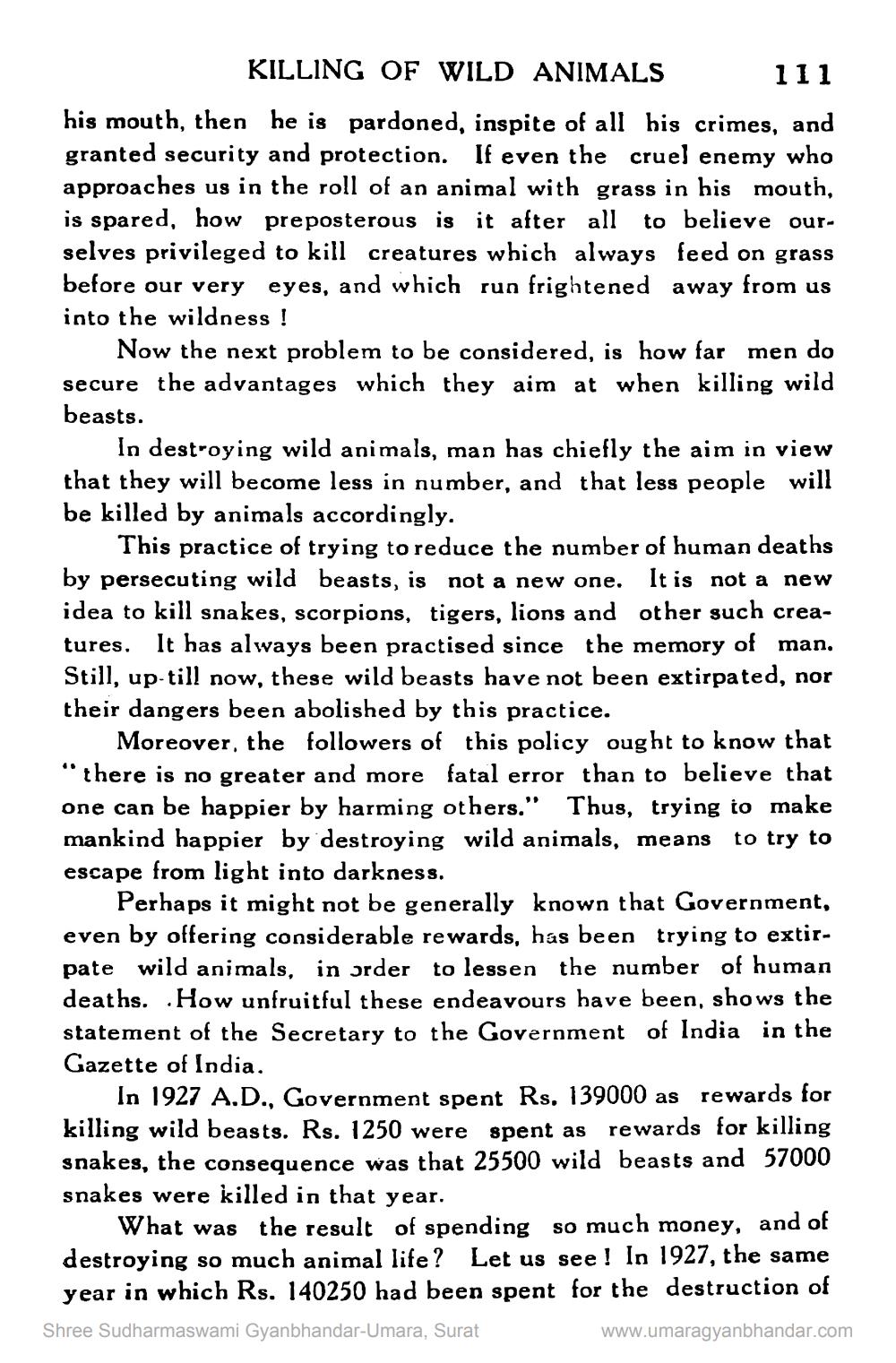________________
KILLING OF WILD ANIMALS
111
his mouth, then he is pardoned, inspite of all his crimes, and granted security and protection. If even the cruel enemy who approaches us in the roll of an animal with grass in his mouth, is spared, how preposterous is it after all to believe ourselves privileged to kill creatures which always feed on grass eyes, and which run frightened away from us
before our very into the wildness!
Now the next problem to be considered, is how far men do secure the advantages which they aim at when killing wild beasts.
In destroying wild animals, man has chiefly the aim in view that they will become less in number, and that less people will be killed by animals accordingly.
This practice of trying to reduce the number of human deaths by persecuting wild beasts, is not a new one. It is not a new idea to kill snakes, scorpions, tigers, lions and other such creatures. It has always been practised since the memory of man. Still, up-till now, these wild beasts have not been extirpated, nor their dangers been abolished by this practice.
Moreover, the followers of this policy ought to know that "there is no greater and more fatal error than to believe that one can be happier by harming others." Thus, trying to make mankind happier by destroying wild animals, means to try to escape from light into darkness.
Perhaps it might not be generally known that Government, even by offering considerable rewards, has been trying to extirpate wild animals, in order to lessen the number of human deaths. How unfruitful these endeavours have been, shows the statement of the Secretary to the Government of India in the Gazette of India.
In 1927 A.D., Government spent Rs. 139000 as rewards for killing wild beasts. Rs. 1250 were spent as rewards for killing snakes, the consequence was that 25500 wild beasts and 57000 snakes were killed in that year.
What was the result of spending so much money, and of destroying so much animal life? Let us see! In 1927, the same year in which Rs. 140250 had been spent for the destruction of Shree Sudharmaswami Gyanbhandar-Umara, Surat
www.umaragyanbhandar.com




